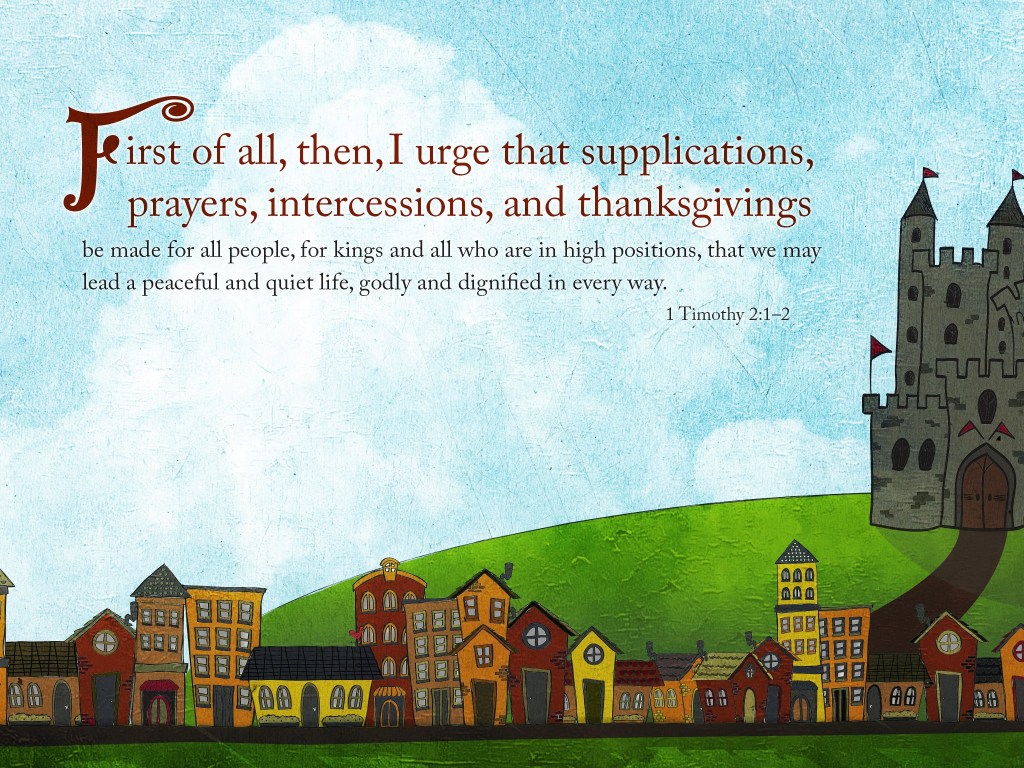
John 16:23–33
23 In that day you will ask nothing of me. Truly, truly, I say to you, whatever you ask of the Father in my name, he will give it to you. 24 Until now you have asked nothing in my name. Ask, and you will receive, that your joy may be full.
25 “I have said these things to you in figures of speech. The hour is coming when I will no longer speak to you in figures of speech but will tell you plainly about the Father. 26 In that day you will ask in my name, and I do not say to you that I will ask the Father on your behalf; 27 for the Father himself loves you, because you have loved me and have believed that I came from God. 28 I came from the Father and have come into the world, and now I am leaving the world and going to the Father.”
29 His disciples said, “Ah, now you are speaking plainly and not using figurative speech! 30 Now we know that you know all things and do not need anyone to question you; this is why we believe that you came from God.” 31 Jesus answered them, “Do you now believe? 32 Behold, the hour is coming, indeed it has come, when you will be scattered, each to his own home, and will leave me alone. Yet I am not alone, for the Father is with me. 33 I have said these things to you, that in me you may have peace. In the world you will have tribulation. But take heart; I have overcome the world.”
Alleluia! Christ is risen!
He is risen indeed! Alleluia!
In the name of Jesus. Amen.
In this Gospel reading, Jesus gives us a command to pray. On the night He was betrayed, Christ said to the disciples, “Until now you have asked nothing in My name. Ask, and you will receive, that your joy may be full” (Jn. 16:24). So, according to Jesus if you want full joy, ask. That’s the command. ‘Ask’ in other words, pray. And the grammar there has a durative aspect to it. It is what you are to continually do. “Keep asking.” That has a different nuance to it than the way the ESV translates it here with just the word ‘ask.’
I don’t particularly like running. I know some of you here do, God bless your soul. I don’t, but when I was in junior high and high school, I ran cross country to help get me in shape for swimming season. At meets, people would stand along the course and cheer us runners on, and it would have been very frustrating if they said, “Run.” That’s what I was already doing. Instead, they would cheer, “Keep running.” Here, Jesus is doing something similar. He’s cheering you on by commanding you to keep asking and keep praying. And we need this encouragement because prayer is work.
Lately, the devil has doubled his efforts to discourage the work of prayer. That attack of Satan comes in many ways, but I’ve noticed it most often after someone commits an evil, heinous crime, politicians and pagans will say, “Prayers aren’t enough. We need to actually do something.” And we Christians, myself included, hear that and start to get at least a little shy about what prayer does. I know I’ve been guilty at times of saying things like, “Well, all we can do is pray.” God, forgive me.
Your prayers work. They work powerfully. They are not a waste of time. In Col. 4:2, 5, Scripture says, “Continue steadfastly in prayer,” and that call comes in the middle of several instructions which Paul says are, “making the best use of the time.” Christians are to use their time wisely and prayer is a good and wise use of your time because prayer does stuff. When you are praying, you aren’t wasting time. Praying isn’t setting aside important things to take a break. Prayer is the important thing. Christian, prayer is the most powerful, impactful thing you can do. A few verses later (Col. 4:12), Paul talks about a man named Epaphras who is “always struggling on your behalf in his prayers.” Does that sound like he’s taking some time off and relaxing? Nope! He’s doing something mighty and powerful by praying.
James 5:16 says, “The prayer of a righteous person,” and, yes, that is you, Christian, “The prayer of a righteous person has great power as it is working.” Prayer accomplishes things because of the power of the One to Whom you are praying. C.S. Lewis might be the most brilliant Christian thinker of the last hundred years, but he gets something wrong about prayer. He said, “[Prayer] doesn’t change God. It changes me.” Sure, yes, prayer changes us, but prayer changes God as well. Scripture teaches that God changes course because of prayer. He does something different than what He was going to do.
James 5:17-18 says that Elijah prayed fervently that it would not rain, and for three and a half years there was no rain. Then, he prayed that it would rain, and it did (1 Kgs. 17:1; 18:42-45). God told King Hezekiah to get ready to die. But he prayed, and God added fifteen years to his life (Is. 38:1-6; 2 Kgs. 20:1-6). Through the prophet Jonah, God told the people of Nineveh that they were going to be destroyed in forty days. But they prayed, and God changed His mind and did not do it (Jon. 3). In our Old Testament reading (Num. 21:4-9), God’s people were complaining about the bread that God was literally raining down from heaven for them to eat, so He sent fiery serpents to kill them. They prayed, and God delivered them because of their prayer. I could go on, but those are all crystal-clear examples of prayer changing what God was doing.
Picture God up in heaven. He is sturdy, calm, cool, collected. He’s got all His plans laid out of how He’s going to conduct the affairs of the world for the benefit of His people. When He Baptized you and made you His child (1 Jn. 3:1-3), He invited you into His “situation room.” There He is looking over His plans, and He asks you, “What do you think we should do here? How should this be handled?” You’d respond, “Um, well, I don’t know. You’re God. Shouldn’t You have this all under control and know how to run everything?” But God says, “Come on, now. I want to know what you think. What do you suggest?” So, you say, “Well, maybe You could move that thing over there. Send someone to preach Your Word over here. Heal this person. Bless that one.” And God says, “Ok. I like it. That’s the plan.”
Now, this doesn’t limit God in any way. The effectiveness of your prayers and the foreknowledge of God is a mystery that we cannot comprehend – similar to the doctrine of the Trinity and the two natures of Christ. How can there be one God yet three Persons? How can Jesus be 100% God and 100% man? We can’t understand or comprehend those things. But Scripture teaches them, so we believe them. The same thing is true about your prayer. Well, Scripture teaches that God is sovereign; He knows what will happen and isn’t your slave. And Scripture also teaches that your prayer changes what God will do. Just because you can’t fit those two things together logically, don’t throw one of them out to make it make sense to your logic.
Instead, see these two seemingly incompatible teachings of Scripture – God’s sovereignty and the power of prayer – see them as a further proof of God’s great love for you. The reason you ask and God responds is His love for you. Back to our Gospel reading, Jesus says in v. 26-27 (I’ll paraphrase a little bit), “Ask in My name. I don’t need to ask the Father for you because the Father Himself loves you.”
This is why God wants you to pray and brings you into His situation room. When you love someone, you permit them to affect and influence your actions, decisions, and directions. Think of a father who comes home from a rough day at work where everything went wrong. He’s frustrated and discouraged. He gets home and just wants to sit in his chair and watch the game. But he gets home, and his son asks, “Daddy, can you read this book to me?” That might not fit in with the father’s plans, but he loves his son and gladly sits on his bed and reads to him. And they spend time laughing and joking together.
When you love someone, you permit and even prefer to let them change what you want to do. Instead, you do what they want. And in that sacrifice, you and the person you love find joy.
Well, God is your perfect, loving Father, and He never tires of your asking. He loves you. He knows your sin and failures. Yet, the Father loves you because you love Jesus and have been forgiven much (Lk. 7:47). So, keep praying. Keep asking. Amen.
Alleluia! Christ is risen!
He is risen indeed! Alleluia!
The peace of God, which surpasses all understanding, will guard your hearts and minds in Christ Jesus. Amen.









You must be logged in to post a comment.